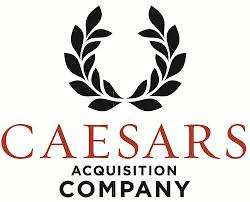Hedge Fund Kingpins Square Off Against Sheldon Adelson over Online Gambling
 Venetian owner Sheldon Adelson’s high-profile personal war against online gambling is back in the news this week, but with an interesting twist: A number of prominent investment-fund managers, including George Soros, Leon Cooperman and John Paulson, are betting against Adelson, by backing a rights offering put together by an offshoot of Caesars Entertainment.
Venetian owner Sheldon Adelson’s high-profile personal war against online gambling is back in the news this week, but with an interesting twist: A number of prominent investment-fund managers, including George Soros, Leon Cooperman and John Paulson, are betting against Adelson, by backing a rights offering put together by an offshoot of Caesars Entertainment.
In November, according to this Forbes report, Caesars Acquisition Co. quietly put together this team of finance kingpins, which also includes Leon Black, David Bonderman, Joshua Harris and Marc Rowan. All together, they dropped $484 million into Caesars Acquisition Co., which along with Caesars Interactive Entertainment is the online-investments spinoff of Caesars Entertainment. CIE deals with the online properties, while CAC (Acquisitions) is where the investment deal-making occurs.
This is all a big finance play, and it’s also worth noting that Caesars Acquisitions was set up independently of the rest of Caesars Entertainment (formerly Harrah’s), just to shield it from the mountain of red ink that Caesars’ collective brick-and-mortar casino business has posted over the last decade. A good chunk of that can be traced to the ill-timed 2006 private equity deal which saw the then Harrah’s taken off the public exchanges by equity funds Apollo Management and Texas Pacific Group, assuming $10.7 billion in leveraged debt in the process, a number which has grown to $28 billion today.
What happened next is that the housing bubble burst, destroying commercial land values as well, and Harrah’s / Caesars has struggled under its debt load ever since.
To a certain extent those historical events help explain why Caesars is more of a market driver when it comes to online gambling matters than are Adelson and his Las Vegas Sands group; Black, one of the investors above, is the founder of Apollo Management, and is on the hook for a chunk of Caesars finances to this day.
The Forbes piece looks at both sides of the battle, which essentially pits the Adelson / Las Vegas Sands land-based casino interests against the rest of the American casino-entertainment industry, which almost uniformly (other than Adelson) wants to expand ever more online. Noted in that is the 30% growth in share price for Caesars Acquisition Co. since its NASDAQ debut six weeks ago, following the shifting of 135,771,882 shares of Caesars Acquisition stock for public sale and the expected proceeds of about $1.17 billion for its owners from the offering — meaning those hedge-fund titans listed above.
If you’re interested in the nuts-and-bolts of all the shares involved, the disclosure press release that Caesars Entertainment Corp. and CAC jointly put out about the November rights offering is here. The whole deal leave Caesars Entertainment with 58% of a third entity called Caesars Growth Partners, while CAC gets 42%; the 135 million shares publicly offered are a portion of that 42%.
It’s still too soon to call this battle’s winner, but the Forbes piece illustrates the deep divide between Adelson and LVSands and the rest of the American gambling industry. Adelson scored huge in Macau — if by bending a few laws in the process — while Caesars and other US firms have struggled amid the far more mature American gambling market.
That’s the real battle going on: As illustrated by the recent collapse of Adelson’s own EuroVegas casino project, there just aren’t that many more Macau-style gambling expansions waiting to happen in brick-and-mortar space. If there’s going to be near-future expansion, it really has to be online, and that’s why the stakes (and Adelson’s industry-confounding opposition) loom so large.
If there’s a comfort for poker players and other gamblers, it’s that all the big names in the gambling biz, excepting Sheldon, have thrown their efforts behind an online future, including, as the Forbes piece notes, the Fertitta brothers of Ultimate Poker and Station Casinos and the well-preserved Kirk Kerkorian and his MGM empire.

















COMMENTS